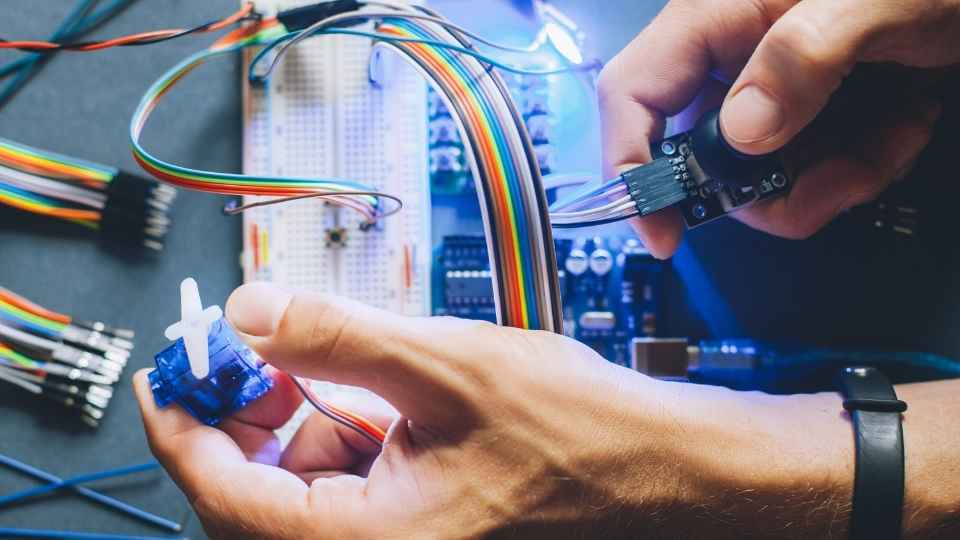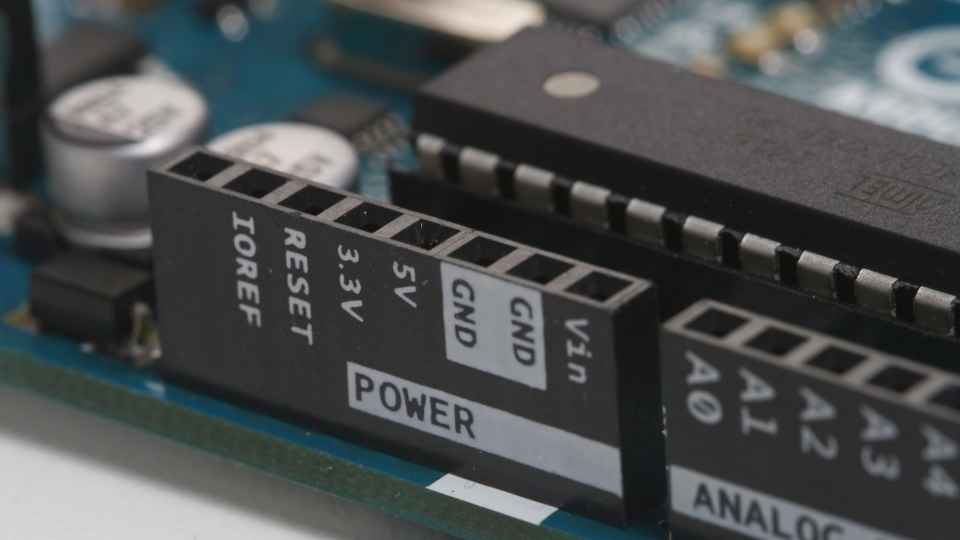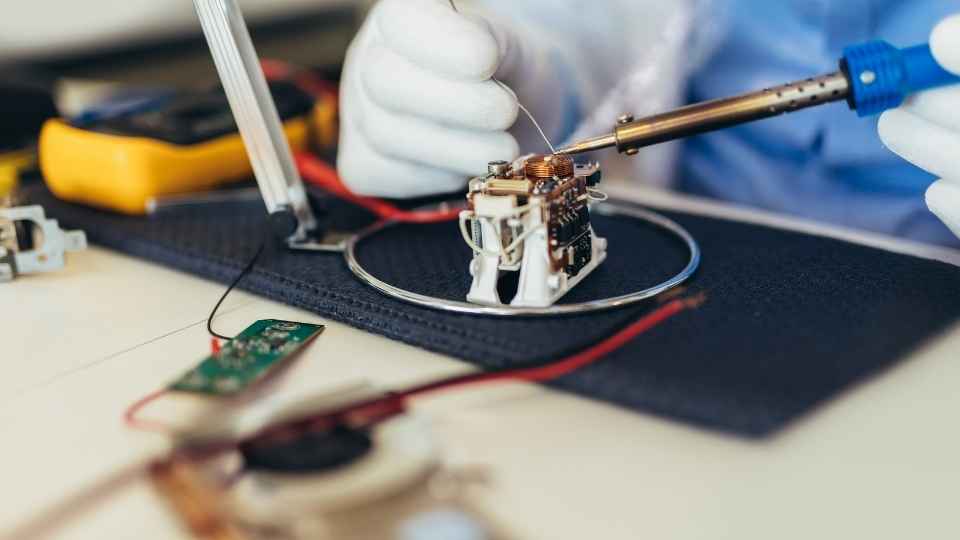
In the fast-paced world of technology, there is nothing more frustrating than encountering a malfunctioning electronic device. It disrupts productivity, hampers communication, and leaves us feeling powerless.
Enter the field service technician - the unsung hero who swoops in to save the day with their technical expertise and unwavering commitment to customer satisfaction.
This article explores what sets an outstanding on-site electronic service apart from the rest. From efficient troubleshooting techniques to proactive maintenance measures, join us as we delve into the world of these skilled professionals who ensure our freedom from technological limitations.
Key Takeaways
- Technical expertise and efficient troubleshooting techniques are essential for effective diagnosis and resolution of complex technical issues.
- Effective communication and customer service skills, including active listening and empathy, are crucial for building positive relationships with customers and improving satisfaction.
- Conflict resolution techniques and rapport-building help resolve conflicts promptly and create a positive atmosphere for effective communication and trust.
- Timely and accurate equipment repair, adaptability to different work environments, and proactive maintenance and preventive measures are necessary for minimizing disruptions, ensuring smooth operation, and maximizing equipment lifespan.
Importance of Technical Expertise
Technical expertise is of utmost importance in the field of on-site electronic service, as it ensures that the technician possesses the necessary knowledge and skills to effectively diagnose and resolve complex technical issues. In this highly specialized industry, a high level of technical proficiency is required to address a wide range of problems that may arise with electronic devices. From troubleshooting hardware failures to identifying software glitches, a technician must have a deep understanding of various electronic components, circuits, and systems.
Having technical expertise enables the technician to not only accurately identify the root cause of an issue but also implement appropriate solutions efficiently. This proficiency saves time for both the technician and the customer, leading to quicker resolutions and minimized downtime. Moreover, it enhances customer satisfaction as they can trust that their electronic devices are in capable hands.
A skilled technician with technical expertise can also provide valuable insights and recommendations for device maintenance and optimization. They can advise customers on best practices to prevent future issues or improve overall performance. By staying up-to-date with advancements in technology, a technician can ensure that they are equipped with the latest knowledge and techniques required for effective problem-solving.
Effective Communication and Customer Service Skills
Effective communication and customer service skills are crucial for field service technicians to excel in their role.

Active listening skills enable technicians to understand the customer's needs and concerns accurately.
Conflict resolution techniques help them address any issues that may arise during interactions.
Empathy and rapport-building foster a positive relationship with customers.
Active Listening Skills
Developing strong active listening skills is crucial for field service technicians to provide outstanding on-site electronic service. Effective communication goes beyond speaking; it involves actively engaging with customers and understanding their needs.
Here are three key reasons why active listening is essential in the field of electronic service:
Enhanced problem-solving: By actively listening, technicians can gather accurate information about the customer's concerns or issues with their electronic devices. This allows them to diagnose problems more effectively and find appropriate solutions.
Improved customer satisfaction: Active listening demonstrates empathy and respect towards customers, creating a positive experience. It helps build trust and rapport, making customers feel valued and understood.

Efficient time management: Listening attentively enables technicians to identify the root cause quickly, avoiding unnecessary delays or repeat visits.
With these benefits in mind, mastering active listening techniques empowers field service technicians to deliver exceptional on-site electronic service. Transitioning into the next section on conflict resolution techniques, effective communication lays the foundation for resolving conflicts promptly and satisfactorily.
Conflict Resolution Techniques
Mastering conflict resolution techniques requires the ability to remain calm and composed while finding mutually beneficial solutions.
As a field service technician, it is crucial to possess these skills in order to provide outstanding on-site electronic service.
When conflicts arise during a service call, it is essential to approach them with a detail-oriented mindset. This involves actively listening to the customer's concerns and technical issues, understanding their perspective, and empathizing with their frustration.
Technically proficient troubleshooting skills are then employed to identify the root cause of the problem. Once identified, effective communication is key in presenting potential solutions that address both the customer's needs and any constraints.
Empathy and Rapport-Building
Establishing rapport and demonstrating empathy towards customers is essential in delivering a satisfactory experience during on-site technical support. When field service technicians prioritize empathy and rapport-building, they can create a positive atmosphere that fosters effective communication and trust. Here are three key reasons why empathy and rapport-building should be at the forefront of every technician's approach:

Enhanced understanding: By actively listening to customers' concerns and showing genuine empathy, technicians can better understand their needs and expectations.
Increased customer satisfaction: Building rapport helps create a sense of connection with customers, making them more likely to feel valued and satisfied with the service provided.
Improved problem-solving: Empathy allows technicians to view issues from the customer's perspective, enabling them to find solutions that meet their specific requirements.
Efficient Troubleshooting Techniques
Utilizing streamlined diagnostic tools and a comprehensive understanding of equipment functionality, technicians can employ efficient troubleshooting techniques to quickly identify and resolve electronic service issues on-site. By leveraging their technical expertise, these field service professionals are able to pinpoint the root cause of problems and provide timely solutions that minimize downtime and maximize productivity for their customers.
Efficient troubleshooting begins with a systematic approach that involves gathering information from the customer about the issue at hand. Technicians ask probing questions to gather relevant details that will aid in diagnosing the problem accurately. Once armed with this information, they use their expertise to determine the most likely causes of the issue based on symptoms exhibited by the equipment.
Technicians then leverage their knowledge of equipment functionality to perform targeted tests and inspections. They utilize specialized diagnostic tools to measure voltage, analyze circuit boards, and test components for faults or malfunctions. This detailed examination allows them to narrow down potential causes further and make informed decisions regarding repairs or replacements.
In addition to technical proficiency, outstanding on-site electronic service requires effective communication skills. Technicians must be able to explain complex concepts in simple terms so that customers can understand what is happening with their equipment. They also need to keep customers informed throughout the troubleshooting process, providing regular updates on progress made towards resolving the issue.

Timely and Accurate Equipment Repair
To excel as a field service technician, one must possess the ability to provide timely and accurate equipment repair. This skill is essential for ensuring minimal downtime and maximizing customer satisfaction. To achieve this, technicians must employ the following strategies:
- Efficient Diagnosis: By utilizing their technical expertise and attention to detail, technicians swiftly identify the root cause of equipment issues.
- Effective Planning: Having a well-thought-out repair plan enables technicians to efficiently address problems, minimizing disruptions to the customer's operations.
- Adequate Resources: Access to necessary tools, spare parts, and technical documentation ensures that repairs can be carried out promptly and accurately.
By prioritizing timely and accurate equipment repair, field service technicians guarantee quick resolutions for customers' electronic problems.
Now, let's explore another crucial aspect of being an outstanding technician – adaptability to different work environments.
Adaptability to Different Work Environments
Adapting seamlessly to diverse work environments demonstrates a field service technician's ability to efficiently navigate unfamiliar settings and deliver exceptional results. A skilled technician possesses the necessary adaptability to thrive in various work environments, whether it be a bustling office complex or a remote industrial site. They understand that each location requires unique approaches and problem-solving techniques.
In unfamiliar settings, an outstanding field service technician pays meticulous attention to detail. They carefully assess the specific requirements of the environment before implementing any repairs or maintenance tasks. Their technical proficiency allows them to quickly troubleshoot issues and provide effective solutions.
However, being adaptable goes beyond technical expertise. A customer-focused approach is vital in ensuring client satisfaction. Outstanding technicians prioritize clear communication and actively listen to clients' concerns, adapting their approach accordingly.
Ultimately, adaptability empowers field service technicians to overcome challenges and exceed expectations regardless of the work environment. Their ability to seamlessly transition between different settings enables them to deliver exceptional results consistently.

Proactive Maintenance and Preventive Measures
Proactive maintenance and preventive measures are crucial in ensuring the smooth operation of equipment and minimizing potential issues.
Regular maintenance helps identify and address any minor issues before they escalate into costly equipment failures, saving both time and money.
Importance of Regular Maintenance
Regular maintenance plays a crucial role in ensuring the optimal functioning of on-site electronic service. By implementing regular maintenance practices, field service technicians can prevent potential issues and ensure that equipment operates at its peak performance. Here are three key reasons why regular maintenance is essential:
Increased Equipment Lifespan: Regular maintenance helps to extend the lifespan of electronic equipment by identifying and addressing any minor issues before they escalate into major problems.
Improved Efficiency: Maintenance activities such as cleaning, lubrication, and calibration enhance the overall efficiency of on-site electronic service. This ensures that equipment operates smoothly and reduces downtime.
Cost Savings: Regular maintenance helps to identify potential failures or malfunctions in advance, allowing for proactive repairs or replacements. This prevents costly breakdowns and unplanned downtime, saving both time and money.
Preventing Costly Equipment Failures
To minimize costly equipment failures, it is essential to identify and address potential issues through timely maintenance practices. Field service technicians play a crucial role in ensuring that electronic equipment functions optimally. By regularly inspecting and servicing equipment, they can detect any signs of wear and tear or impending failure.

These professionals possess the technical expertise to troubleshoot complex issues, diagnose problems accurately, and implement effective solutions. They are detail-oriented, meticulously examining every component to ensure its proper functioning.
Moreover, outstanding field service technicians prioritize customer satisfaction by providing prompt responses and clear communication throughout the maintenance process. They understand that their role is not limited to fixing equipment but also building trust with customers through their professionalism and expertise.
Maximizing Equipment Lifespan
By implementing effective maintenance strategies, businesses can significantly extend the lifespan of their equipment and minimize the need for costly replacements. This is crucial in today's competitive market where businesses strive to maximize efficiency and reduce expenses.
To achieve this, organizations should consider the following:
Regular inspections: Conducting routine inspections allows businesses to detect any potential issues before they escalate into major problems.
Preventive maintenance: Implementing a proactive approach by performing regular maintenance tasks, such as lubrication or calibration, can prevent premature wear and tear.
Training programs: Investing in training programs for employees ensures that they have the necessary knowledge and skills to operate equipment properly, reducing the risk of accidents or improper usage.

Frequently Asked Questions
What Are the Specific Technical Qualifications or Certifications Required to Become a Field Service Technician?
Specific technical qualifications and certifications required to become a field service technician include proficiency in troubleshooting, repairing, and maintaining electronic equipment. Relevant certifications may include CompTIA A+, Cisco Certified Network Associate (CCNA), and Microsoft Certified Solutions Expert (MCSE).
How Can Field Service Technicians Effectively Handle Difficult or Frustrated Customers?
Field service technicians can effectively handle difficult or frustrated customers by employing active listening skills, empathizing with their concerns, and providing timely and accurate solutions. This approach ensures customer satisfaction and builds trust in the technician's expertise.
What Are Some Common Challenges or Obstacles That Field Service Technicians Face On-Site?
Field service technicians often encounter various challenges on-site, including equipment malfunctions, complex technical issues, and time constraints. These obstacles require a detail-oriented approach, technical proficiency, and a customer-focused attitude to deliver outstanding on-site electronic service.
How Do Field Service Technicians Stay Updated on the Latest Technological Advancements in Their Field?
Field service technicians stay updated on the latest technological advancements in their field by attending industry conferences, participating in training programs, and engaging in online forums. This allows them to maintain a high level of technical proficiency and provide exceptional on-site electronic service.
What Are Some Strategies Field Service Technicians Can Use to Prioritize and Manage Their Workload Effectively?
To effectively prioritize and manage their workload, field service technicians can utilize strategies such as creating a schedule, setting clear goals and objectives, delegating tasks when necessary, utilizing time management techniques, and regularly assessing and adjusting their priorities.
 Basic Electronics ConceptsEssential ToolsCircuit Design BasicsMicrocontrollersDIY Electronics ProjectsRoboticsPrivacy PolicyTerms And Conditions
Basic Electronics ConceptsEssential ToolsCircuit Design BasicsMicrocontrollersDIY Electronics ProjectsRoboticsPrivacy PolicyTerms And Conditions
